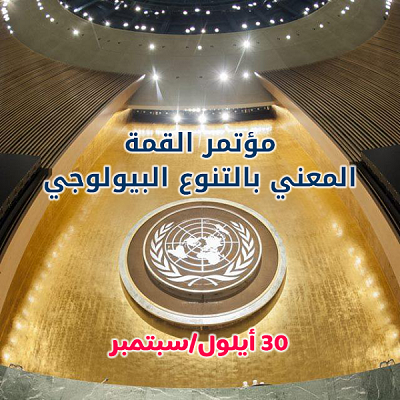with participation of Iraq, the Biodiversity Summit was held at the headquarters of the United Nations

A biodiversity summit was held at the headquarters of the United Nations on 9/30/2020, in the presence of the Secretary-General of the United Nations, Mr. António Guterres, in which the heads of state and government participated with pre-recorded statements.
The summit aims to address the issue of biodiversity at the level of heads of state and government to high light the challenges in this regard, which have direct implications regarding the eradication of poverty and improving the livelihoods of millions of people.
Biodiversity is an essential element for development, and it also provides an opportunity to discuss an integrated view of the three relevant Rio conventions, on biodiversity, climate change and combating desertification. It is one of the topics of interest in Iraq, as Iraq has a geographically diversified environment, that includes the marshes of southern Iraq, which are a model for wetlands listed on the UNESCO World Heritage List as a natural site, and it considers an important habitat for biological diversity, as this diversity constitutes a unique characteristic as an economic resource for the country, where the government worked diligently during the past four years in improving the methods of water resources management in order to secure sufficient quantities of water for the natural wetlands in southern Iraq, and Iraq will spare no effort to protect this natural legacy that we inherited from our Sumerian ancestors.
However, on the other hand, we are facing and will face great burdens, challenges and huge environmental problems in the future, as the wars and their repercussions over the past forty years are considered a heavy legacy, in addition to the terrorist operations that Iraq has faced and is facing, as a whole, causing environmental challenges, as well as the scarcity of trans boundary water resources. , High temperatures, declining of green spaces, sand and dust storms, all the mentioned factors represent real challenges to Iraq’s efforts to preserve biological diversity, according to which Iraq was classified in the sixth report of the Global Environment Outlook (GEO-6) as one of the most vulnerable countries to change the climate.